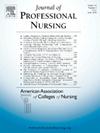The effects of workplace violence on nursing students from the perspectives of clinical facilitators or preceptors
IF 2.9
3区 医学
Q1 NURSING
引用次数: 0
Abstract
Background
Violence is well documented in the nursing profession and is compounded by an increasing incidence of workplace violence towards nursing students. Poor clinical experiences where violence is witnessed or experienced have long-term consequences for both the student and the profession.
Purpose
This study aimed to ascertain clinical facilitators' perceptions about the impact of workplace violence on nursing students during their clinical placements.
Methods
Phenomenology guided qualitative research methods were used in this study. Eleven clinical facilitators employed in various South Australian healthcare settings were interviewed, and the qualitative data was transcribed and thematically analysed manually assisted by NVivo 12 software.
Results
Three major themes emerged from the data: Academic and future career impacts, Impact on personal life, and mental and physical health. Clinical facilitators described how baccalaureate nursing students feared for their emotional, mental and physical safety, questioned their career choices and described the impact of violent experiences on their personal lives.
Conclusion
Clinical facilitators were often unable to prevent such experiences from happening to nursing students and, at times, felt unprepared or inadequately supported by universities. A combined University and healthcare facility approach that prepares, manages, supports and reduces the incidence of workplace violence for nursing students and clinical facilitators is urgently required to safeguard the mental, physical and emotional health of student nurses and clinical facilitators.
职场暴力对护生的影响:从临床辅导员或导师的角度
背景暴力在护理专业中是有据可查的,并且随着工作场所对护理学生的暴力事件的增加而变得更加复杂。目睹或经历暴力的不良临床经历对学生和专业都有长期影响。目的本研究旨在了解临床辅导员对实习期间职场暴力对护生影响的认知。方法采用现象学指导的定性研究方法。采访了南澳大利亚州各医疗机构的11名临床辅导员,并通过NVivo 12软件对定性数据进行转录和主题分析。结果数据显示了三个主要主题:学业和未来职业的影响,对个人生活的影响,以及心理和身体健康。临床辅导员描述了本科护理学生如何担心他们的情感、精神和身体安全,质疑他们的职业选择,并描述了暴力经历对他们个人生活的影响。结论临床辅导员往往无法阻止这些经历发生在护生身上,有时感到措手不及或得不到大学的充分支持。迫切需要一种大学和医疗机构联合的方法,为护理学生和临床辅导员准备、管理、支持和减少工作场所暴力的发生率,以保障学生护士和临床辅导员的精神、身体和情感健康。
本文章由计算机程序翻译,如有差异,请以英文原文为准。
求助全文
约1分钟内获得全文
求助全文
来源期刊
CiteScore
4.80
自引率
8.00%
发文量
153
审稿时长
52 days
期刊介绍:
The Journal will accept articles that focus on baccalaureate and higher degree nursing education, educational research, policy related to education, and education and practice partnerships. Reports of original work, research, reviews, insightful descriptions, and policy papers focusing on baccalaureate and graduate nursing education will be published.

 求助内容:
求助内容: 应助结果提醒方式:
应助结果提醒方式:


